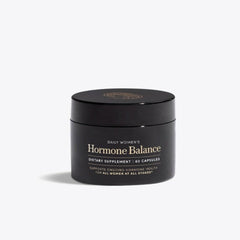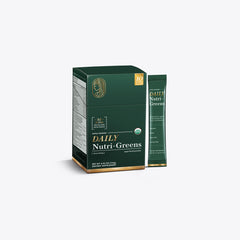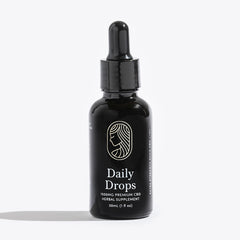I don’t have enough energy to…
I need more energy for…
My energy feels low…
When it comes to our health, “energy” is a term that comes up often. Many of us can easily make a list of things that deplete our energy, but what does energy really mean when it comes to the human body?
 When most people come to their health practitioner complaining about low energy, they usually mean that they feel less than capable of performing the way they want to in their everyday life physically, mentally, or both. The causes of this feeling of low energy are variable – from inadequate nutrition to hormone imbalances – but this article is going to focus on the energy itself.
When most people come to their health practitioner complaining about low energy, they usually mean that they feel less than capable of performing the way they want to in their everyday life physically, mentally, or both. The causes of this feeling of low energy are variable – from inadequate nutrition to hormone imbalances – but this article is going to focus on the energy itself.
What is energy?
You might be surprised to learn that energy in the human body mostly comes down to a single molecule called Adenosine Triphosphate – ATP for short. Think of ATP as the fuel of your cells. Without ATP, you would not be able to do anything – just like your car can’t run without gas or electricity. ATP is the energy currency of your entire body. If you go too long without making ATP, your cells die… and ultimately you would too, because every time you contract a muscle, have a heartbeat, take a breath, send a nerve impulse, or think a thought, you are using ATP.
So why don’t we just drink ATP elixirs all day to keep our energy tank from running dry?
Well, we probably would if we could – but instead, humans are elegantly designed to process energy out of food. Your body literally transforms the food you eat into energy for your cells, which is a big part of why what you eat matters when it comes to having the abundant energy you want.
How do we get energy?
 To get ATP, you need to regularly eat protein (chicken, fish, eggs, beans, meat), fat (butter, oil, lard), and carbohydrates (bread, pasta, fruit, vegetables). Your body takes these foods and breaks them down into their components (amino acids, sugars, and fatty acids). <1> At the very end, most of the food we digest is processed into glucose – yes, even protein and fat. These molecules of glucose get split apart in your cells via a process called cellular respiration. The chemical processes involved in cellular respiration are things that give biology students recurring nightmares, but fortunately your cells know exactly what to do, and they go about performing respiration and creating ATP for you all day long. If you are wanting to take a deeper dive into the biochemistry of cellular respiration and energy production, this little video is a gentle introduction.
To get ATP, you need to regularly eat protein (chicken, fish, eggs, beans, meat), fat (butter, oil, lard), and carbohydrates (bread, pasta, fruit, vegetables). Your body takes these foods and breaks them down into their components (amino acids, sugars, and fatty acids). <1> At the very end, most of the food we digest is processed into glucose – yes, even protein and fat. These molecules of glucose get split apart in your cells via a process called cellular respiration. The chemical processes involved in cellular respiration are things that give biology students recurring nightmares, but fortunately your cells know exactly what to do, and they go about performing respiration and creating ATP for you all day long. If you are wanting to take a deeper dive into the biochemistry of cellular respiration and energy production, this little video is a gentle introduction.
So, if your cells are working away making energy for you, then why don’t you have all the boundless energy you want? Unfortunately, sorting this out can be a bit more complex. Some of the things that lead to feelings of inadequate energy are:
 1. Insufficient intake of food or poor quality food. Sometimes you just aren’t getting enough fuel into your body to create the energy you need for your cells.
1. Insufficient intake of food or poor quality food. Sometimes you just aren’t getting enough fuel into your body to create the energy you need for your cells.
2. Low levels of vitamins and minerals. While “macro” nutrients (protein, fat, carbohydrate) are what become ATP, the whole process of getting from food to ATP requires a lot of other nutrients. For example, vitamins that act as coenzymes to catalyze reactions, and minerals that drive chemical reactions and transport ATP to where it needs to go.
3. Hormone imbalances. For example, low thyroid hormone slows the production of ATP in your cells. <2>
4. Poor sleep. Adenosine, the A in ATP also acts as a neurotransmitter in your brain. It is the kind of neurotransmitter that we call inhibitory, meaning it slows things down. As we break down ATP for energy all day long, free adenosine builds up and eventually sends a strong enough signal that it makes you tired. During deep, restful sleep, adenosine is cleared from the brain, and the next day you start over again. But if you don’t get enough sleep to clear adenosine, this can contribute to daytime fatigue, poor attention and more. <3>
Fortunately, there is a lot that can be done through diet, lifestyle, and supplementation to help improve energy. If you are looking for a deeper dive, here are some places to go next:
- Learn about EQ’s Energy Capsules Product availability may vary.
- CBD For Energy: Top Tips for a Natural Energy Boost
- Learn about how EQ Wellness Coaches can help you improve your energy levels
Are you trying to figure out why your personal energy levels are not as good as you need them to be? Our Wellness Coaches are here to help you figure out where to start! Schedule your first complementary wellness coaching session with one of our Certified Wellness Coaches here.
References:
<1> Bonora M, Patergnani S, Rimessi A, et al. ATP synthesis and storage. Purinergic Signal. 2012;8(3):343-357. doi:10.1007/s11302-012-9305-8
<2> Harper ME, Seifert EL. Thyroid hormone effects on mitochondrial energetics. Thyroid Off J Am Thyroid Assoc. 2008;18(2):145-156. doi:10.1089/thy.2007.0250
<3> Chikahisa S, Séi H. The Role of ATP in Sleep Regulation. Front Neurol. 2011;2:87. doi:10.3389/fneur.2011.00087




